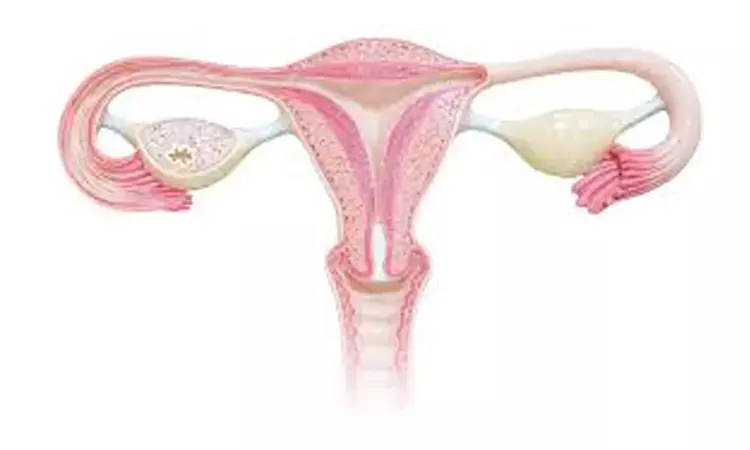- Home
- Medical news & Guidelines
- Anesthesiology
- Cardiology and CTVS
- Critical Care
- Dentistry
- Dermatology
- Diabetes and Endocrinology
- ENT
- Gastroenterology
- Medicine
- Nephrology
- Neurology
- Obstretics-Gynaecology
- Oncology
- Ophthalmology
- Orthopaedics
- Pediatrics-Neonatology
- Psychiatry
- Pulmonology
- Radiology
- Surgery
- Urology
- Laboratory Medicine
- Diet
- Nursing
- Paramedical
- Physiotherapy
- Health news
- Fact Check
- Bone Health Fact Check
- Brain Health Fact Check
- Cancer Related Fact Check
- Child Care Fact Check
- Dental and oral health fact check
- Diabetes and metabolic health fact check
- Diet and Nutrition Fact Check
- Eye and ENT Care Fact Check
- Fitness fact check
- Gut health fact check
- Heart health fact check
- Kidney health fact check
- Medical education fact check
- Men's health fact check
- Respiratory fact check
- Skin and hair care fact check
- Vaccine and Immunization fact check
- Women's health fact check
- AYUSH
- State News
- Andaman and Nicobar Islands
- Andhra Pradesh
- Arunachal Pradesh
- Assam
- Bihar
- Chandigarh
- Chattisgarh
- Dadra and Nagar Haveli
- Daman and Diu
- Delhi
- Goa
- Gujarat
- Haryana
- Himachal Pradesh
- Jammu & Kashmir
- Jharkhand
- Karnataka
- Kerala
- Ladakh
- Lakshadweep
- Madhya Pradesh
- Maharashtra
- Manipur
- Meghalaya
- Mizoram
- Nagaland
- Odisha
- Puducherry
- Punjab
- Rajasthan
- Sikkim
- Tamil Nadu
- Telangana
- Tripura
- Uttar Pradesh
- Uttrakhand
- West Bengal
- Medical Education
- Industry
Gynecologic Cancer: Apixaban effective oral option for post-surgery thromboprophylaxis

USA: Oral apixaban may be a safer alternative to subcutaneous enoxaparin for thromboprophylaxis after surgery for gynecologic cancer, according to a recent study in the JAMA Network Open. Oral apixaban is easier and less painful for patients to take.
Gynecologic cancers (uterine, ovarian, cervical, and vulvar) affect approximately 100 000 women in the US each year. The standard of care for nearly all gynecologic cancers (early and advanced stage) remains aggressive surgical debulking with resection of all visible disease.
Current guidelines recommend a 28-day course of enoxaparin for thromboprophylaxis after surgery for gynecologic cancer. However, previous studies have shown enoxaparin to have low adherence rates in addition to its high cost. Saketh R. Guntupalli, University of Colorado School of Medicine at Denver, Aurora, and colleagues investigate the safety and efficacy of an oral treatment alternative for thromboprophylaxis in postoperative patients with gynecologic cancer.
For the purpose, the researchers conducted a patient-based, multicenter, open-label, blinded, endpoint, randomized clinical trial between May 2015 to March 2019 in outpatient and inpatient gynecologic oncology settings. It included women undergoing surgery for suspected or confirmed gynecologic cancer. The trial compared rates of major bleeding and clinically relevant nonmajor bleeding events during a 90-day follow-up period in patients taking apixaban or enoxaparin for postoperative thromboprophylaxis using a modified intent-to-treat analysis.
The study enrolled 400 women, of which 204 received apixaban (2.5 mg orally twice daily) and 196 received enoxaparin (40 mg subcutaneously daily).
The primary outcome was major bleeding and clinically relevant nonmajor bleeding events.
Key findings of the study include:
- Treatment groups did not differ in terms of race/ethnicity, cancer stage, or surgery modality (open vs robotic).
- There were no statistically significant differences between the apixaban and enoxaparin groups in terms of rates of major bleeding events (1 patient [0.5%] vs 1 patient [0.5%]; odds ratio [OR], 1.04), clinically relevant nonmajor bleeding events (12 patients [5.4%] vs 19 patients [9.7%]; OR, 1.88), venous thromboembolic events (2 patients [1.0%] vs 3 patients [1.5%]; OR, 1.57), adverse events, medication adherence, or quality of life between the groups.
- Participant satisfaction was significantly greater in the apixaban group with regard to ease of taking the medication (186 patients [98.9%] vs 110 patients [58.8%]; OR, 0.06) and pain associated with taking the medication (4 patients [2.1%] vs 92 patients [49.2%]; OR, 9.20).
"These findings suggest that oral apixaban is a potentially safe, less painful, and easier-to-take alternative to subcutaneous enoxaparin for thromboprophylaxis after surgery for gynecologic cancer. The efficacy of apixaban to prevent venous thromboembolic events is hypothesized as being equivalent," concluded the authors.
The study, "Safety and Efficacy of Apixaban vs Enoxaparin for Preventing Postoperative Venous Thromboembolism in Women Undergoing Surgery for Gynecologic Malignant Neoplasm: A Randomized Clinical Trial," is published in the JAMA Network Open.
Dr Kamal Kant Kohli-MBBS, DTCD- a chest specialist with more than 30 years of practice and a flair for writing clinical articles, Dr Kamal Kant Kohli joined Medical Dialogues as a Chief Editor of Medical News. Besides writing articles, as an editor, he proofreads and verifies all the medical content published on Medical Dialogues including those coming from journals, studies,medical conferences,guidelines etc. Email: drkohli@medicaldialogues.in. Contact no. 011-43720751


